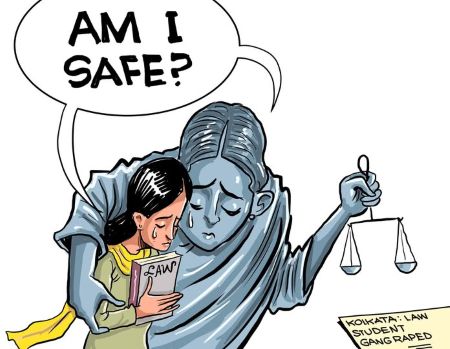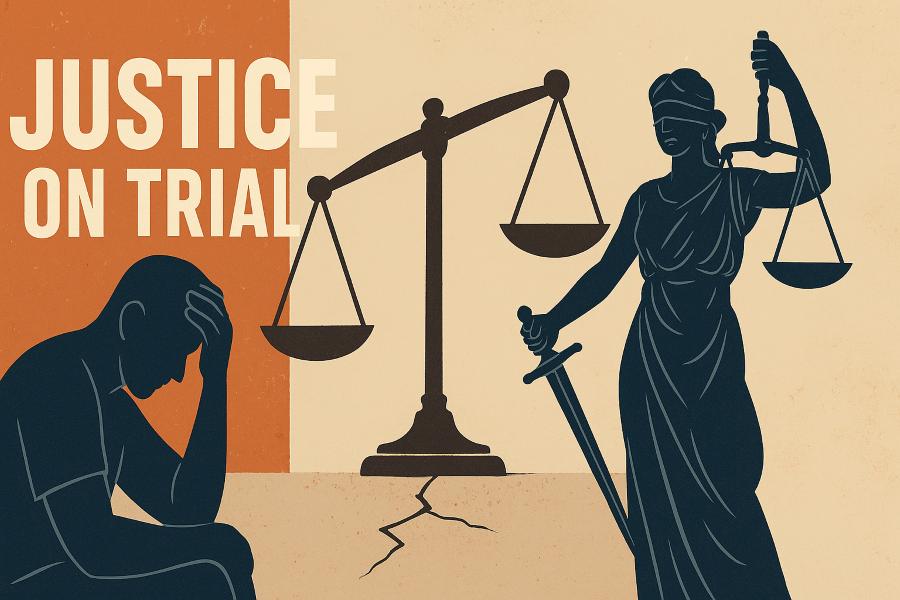Undertrials, delays, and wasted litigation: why the courts must change and how they can.
WITH OVER FIVE cases pending in various courts across the country, and long delays in final verdicts, our justice delivery system is deeply flawed. It is common to come across cases pending for decades, at times being contested by the next generation of the original petitioners and respondents.
The long processes involved, frequent adjournments, and the ghastly environment — particularly in subordinate courts — make it a nightmarish experience for those involved in litigation. Very often, the process itself becomes the punishment, regardless of the final verdict.
 The plight of undertrials is even worse. There are innumerable cases where the accused languish in jail for years. Almost all such cases involve the poor and uneducated, who are deprived of proper legal representation. About 80 per cent of inmates in jails are undertrials.
The plight of undertrials is even worse. There are innumerable cases where the accused languish in jail for years. Almost all such cases involve the poor and uneducated, who are deprived of proper legal representation. About 80 per cent of inmates in jails are undertrials.
But what happens if such accused are found not guilty after years of incarceration? Virtually nothing. The prosecuting officers — usually government employees — go scot-free, and no action is taken against those who conducted poor investigations or built weak evidence.
It is in this context that the observation made by the Supreme Court in a recent case of acquittal is important and deserves the government’s attention.
A bench comprising Justice Vikram Nath, Justice Sanjay Karol, and Justice Sandeep Mehta set free an accused who had been convicted of murdering two young lovers about 15 years ago. The bench observed that the accused was convicted despite “faulty investigation, shaky evidence and non-examination of material witnesses.”

The judgment noted: “The worrying feature here is that the conviction had no legs to stand on whatsoever, and yet the appellant-convict has been in custody for years,” and observed that in several other countries, including the United States of America, “acquittal after a long period of incarceration has led courts to direct states to award compensation to persons who suffered behind bars, only to be eventually held innocent.”
The court said that Parliament could take a leaf out of provisions in other countries to compensate people acquitted after spending several years behind bars. This is a suggestion the government must consider expeditiously.

Another long-overdue reform is curbing the mindless and mechanical filing of appeals or contesting verdicts of subordinate courts by the government, which remains the biggest litigant.
The lack of application of mind and the tendency to contest any adverse judgment have clogged the system and delayed justice.
The Law Ministry deserves to be applauded for its recent move to streamline litigation practices and prevent unnecessary legal battles. The latest guidelines issued by the ministry aim to overhaul how the government handles its cases before courts and tribunals.
The directive discourages unnecessary appeals, particularly Special Leave Petitions (SLPs) to the Supreme Court. It lays down clear criteria for when appeals should be filed — focusing on cases with significant national consequences, important questions of public policy, major financial implications, or contradictory orders from different High Courts.
The document provides a comprehensive blueprint for ministries and departments to curb avoidable litigation, avoid mechanical filing of appeals, and foster better inter-departmental coordination.

It emphasizes measures such as root-cause analysis, rationalisation of appeals, and the use of alternative dispute resolution avenues.
These include an online Mediation Platform that enables parties — including government departments and citizens — to mediate disputes remotely, reducing the time and cost of litigation.

An Arbitration Management Platform has also been introduced for registering, monitoring, and tracking arbitration proceedings while ensuring compliance with laws. Additionally, Dispute Analysis tools help assess the likelihood of successful resolution and identify viable cases for mediation or arbitration.
Under the guidelines, pending cases will now be classified into three categories: highly sensitive, sensitive, and regular. Highly sensitive or significant cases will receive special attention from top officials, including the Secretary of the concerned department.
The guidelines can go a long way in improving the justice delivery system and cutting down unnecessary litigation. However, their effective implementation and execution will be the key to success. ![]()
_______
Also Read:
When VIPs Trample the Devotees
Disclaimer : PunjabTodayNews.com and other platforms of the Punjab Today group strive to include views and opinions from across the entire spectrum, but by no means do we agree with everything we publish. Our efforts and editorial choices consistently underscore our authors’ right to the freedom of speech. However, it should be clear to all readers that individual authors are responsible for the information, ideas or opinions in their articles, and very often, these do not reflect the views of PunjabTodayNews.com or other platforms of the group. Punjab Today does not assume any responsibility or liability for the views of authors whose work appears here.
Punjab Today believes in serious, engaging, narrative journalism at a time when mainstream media houses seem to have given up on long-form writing and news television has blurred or altogether erased the lines between news and slapstick entertainment. We at Punjab Today believe that readers such as yourself appreciate cerebral journalism, and would like you to hold us against the best international industry standards. Brickbats are welcome even more than bouquets, though an occasional pat on the back is always encouraging. Good journalism can be a lifeline in these uncertain times worldwide. You can support us in myriad ways. To begin with, by spreading word about us and forwarding this reportage. Stay engaged.
— Team PT

